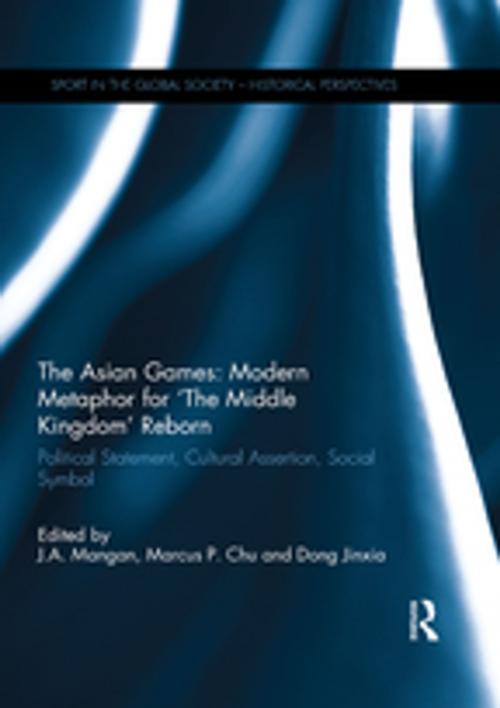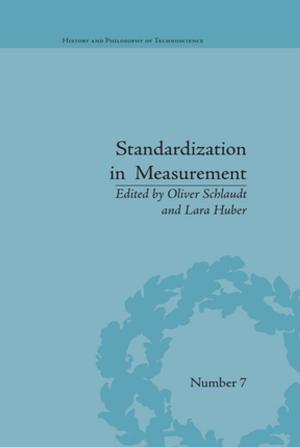The Asian Games: Modern Metaphor for The Middle Kingdom Reborn
Political Statement, Cultural Assertion, Social Symbol
Nonfiction, Sports| Author: | ISBN: | 9781351546188 | |
| Publisher: | Taylor and Francis | Publication: | July 5, 2017 |
| Imprint: | Routledge | Language: | English |
| Author: | |
| ISBN: | 9781351546188 |
| Publisher: | Taylor and Francis |
| Publication: | July 5, 2017 |
| Imprint: | Routledge |
| Language: | English |
The premise of The Asian Games: Modern Metaphor forThe Middle Kingdom Reborn - Political Statement, Cultural Assertion, Social Symbol is emphatic. The Guangzhou 2010 Asian Games was a metaphor for hegemony and renaissance. China crushed the other Asian nations with the massive weight of its Gold Medalhaul and demonstrated regional self-confidence regained. The huge accumulation of gold medals emphasized that once again China stood apart, and above, other nations of Asia. China's reaction and the reactions of the other Asian nations are explored in The Asian Games. There is another premise in the publication that theChinese Asian Games were a harbinger of a wider dominance to come: geopolitically, politically, militarily, economically and culturally. And there is a further issue raised by the Guangzhou Asian Games- the continuing determination of the Asian nations to mount a distinctive Games that is Asian and resistant to the cumbersome gigantism of the Modern Olympic Games. Asia now has the wealth to promote, present and project a global sports mega-event with an Asian identity and in an Asian idiom. This Collection is unique in focus, argument and evidence.This book was published as a special issue of the International Journal of the History of Sport.
The premise of The Asian Games: Modern Metaphor forThe Middle Kingdom Reborn - Political Statement, Cultural Assertion, Social Symbol is emphatic. The Guangzhou 2010 Asian Games was a metaphor for hegemony and renaissance. China crushed the other Asian nations with the massive weight of its Gold Medalhaul and demonstrated regional self-confidence regained. The huge accumulation of gold medals emphasized that once again China stood apart, and above, other nations of Asia. China's reaction and the reactions of the other Asian nations are explored in The Asian Games. There is another premise in the publication that theChinese Asian Games were a harbinger of a wider dominance to come: geopolitically, politically, militarily, economically and culturally. And there is a further issue raised by the Guangzhou Asian Games- the continuing determination of the Asian nations to mount a distinctive Games that is Asian and resistant to the cumbersome gigantism of the Modern Olympic Games. Asia now has the wealth to promote, present and project a global sports mega-event with an Asian identity and in an Asian idiom. This Collection is unique in focus, argument and evidence.This book was published as a special issue of the International Journal of the History of Sport.















